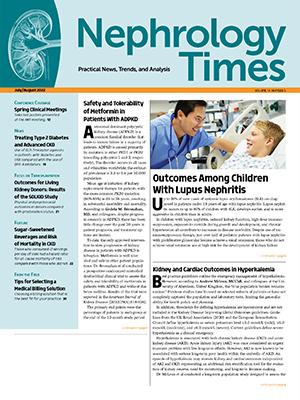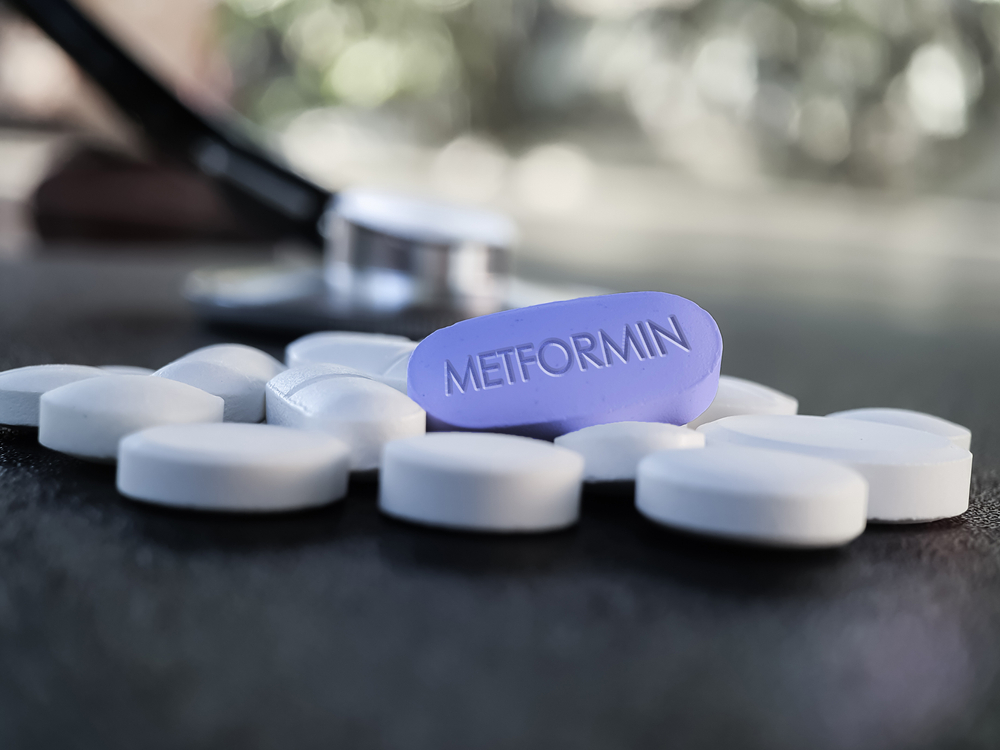
In nearly two-thirds of cases of chronic kidney disease (CKD) in the United States, the underlying cause is either diabetes or hypertension. In the general population, the integration of healthy eating and healthy moving (increased physical exercise) with conventional medical care improves outcomes for diabetes and hypertension. Adverse outcomes associated with CKD due to diabetes or hypertension may be reduced with the integration of healthy eating and health moving with conventional medical care.
The risks for CKD are disproportionately high among individuals of low socioeconomic states (SES); Medicaid is the federal government program designed to support the health needs of patients of low SES. Donald Wesson, MD, MBA, FASN, and colleagues conducted a study to examine whether there are offerings within Medicaid that could support the integration of healthy eating and healthy moving with traditional medical care to treat patients with CKD and diabetes and/or hypertension. Results of the study were reported during a poster session at NKF SCM22 in a poster titled Payment Policy Support for Integrating Healthy Eating and Healthy Moving with Traditional Medical Care for Chronic Kidney Disease Care.
Increasingly, Medicaid is going beyond the realm of conventional medical care to meet the health needs of its patients via the addition of non-medical drivers of health, such as heathy eating and healthy moving. Some state Medicaid programs address those needs with managed care products and other authorities. In some states, Medicaid utilizes flexibility within the program to enable accessibility of home delivered meals and help fund statewide infrastructure to support healthy eating. There are also grants available to support incentives for beneficiaries to take advantage of various programs designed to encourage and support increased physical exercise.
In summary, the authors said, “Medicaid provides opportunities to states to support integration of healthy eating and healthy moving with conventional medical care in the treatment of individuals with diabetes and/or hypertension associated with CKD. This integration holds promise to reduce increasing adverse outcomes in all patients with CKD and should be explored as a mechanism to reduce adverse outcomes especially in low SES populations whose health needs are supported by Medicaid.”
Source: Wesson D, Mathur V, Tangri N, Hamlett S, Bushinsky D. Payment policy support for integrating healthy eating and healthy moving with traditional medical care for chronic kidney disease care. Abstract of a poster (Poster #254) presented at the National Kidney Foundation 2022 Spring Clinical Meetings, Boston, Massachusetts, April 6-10, 2022.







 © 2025 Mashup Media, LLC, a Formedics Property. All Rights Reserved.
© 2025 Mashup Media, LLC, a Formedics Property. All Rights Reserved.